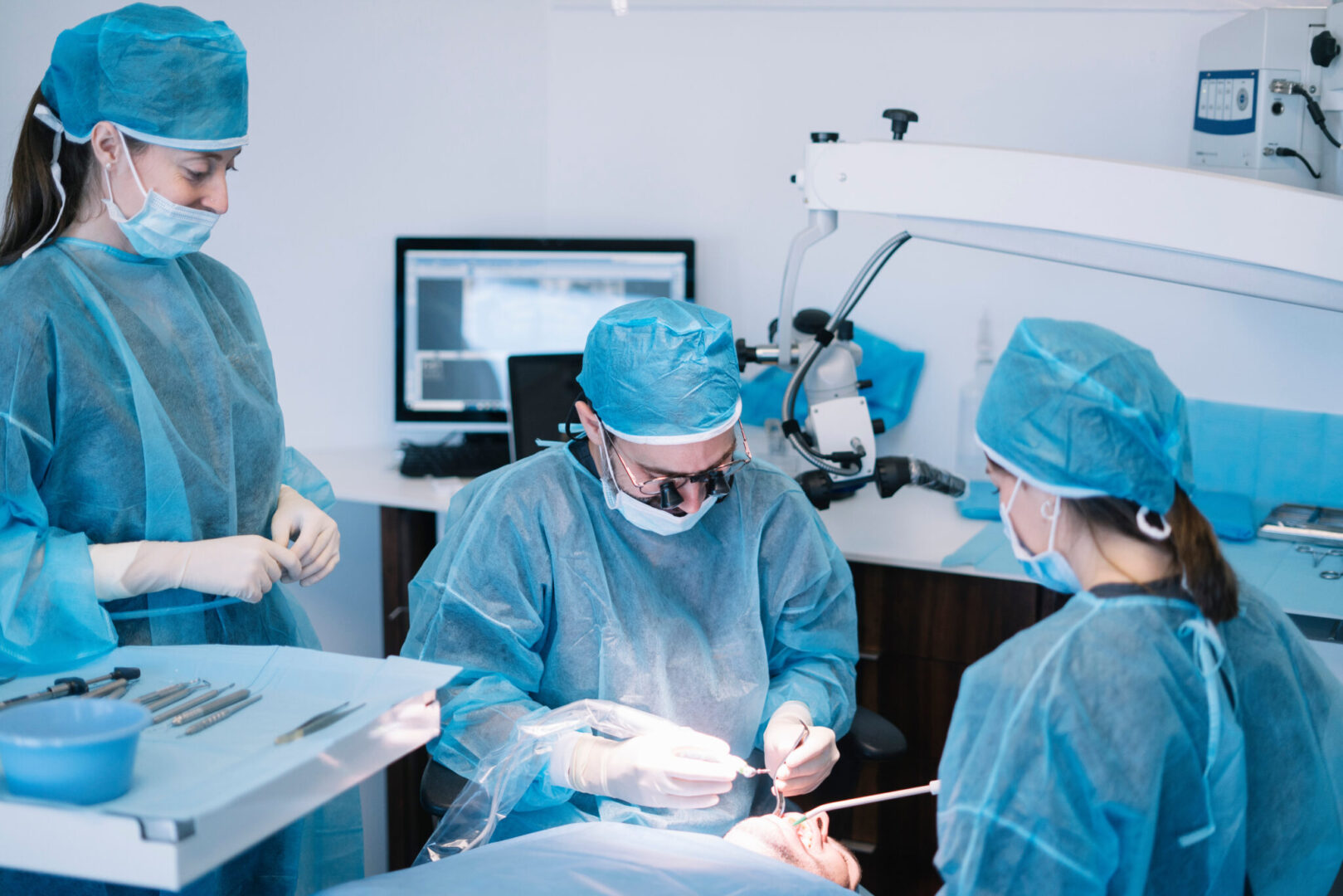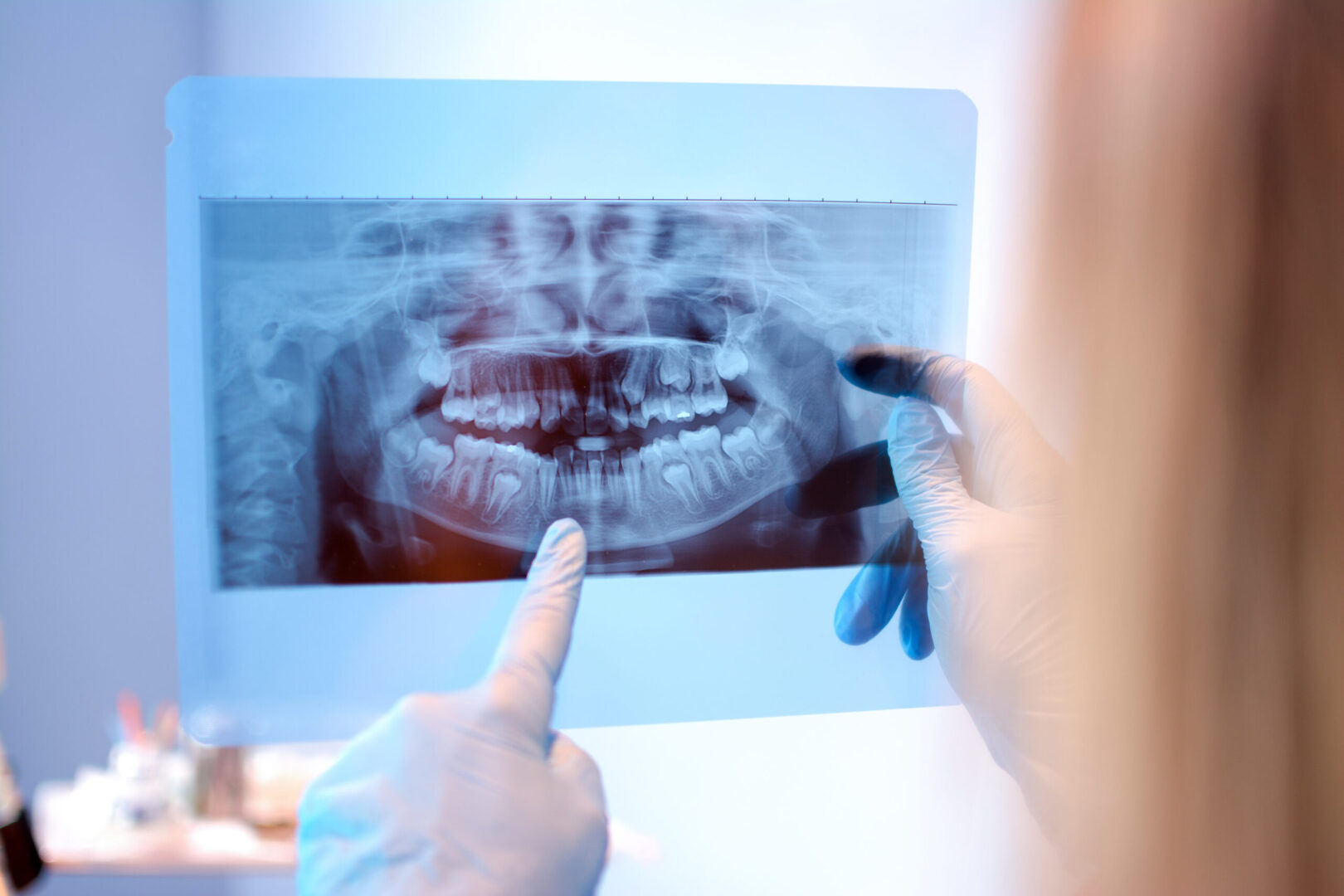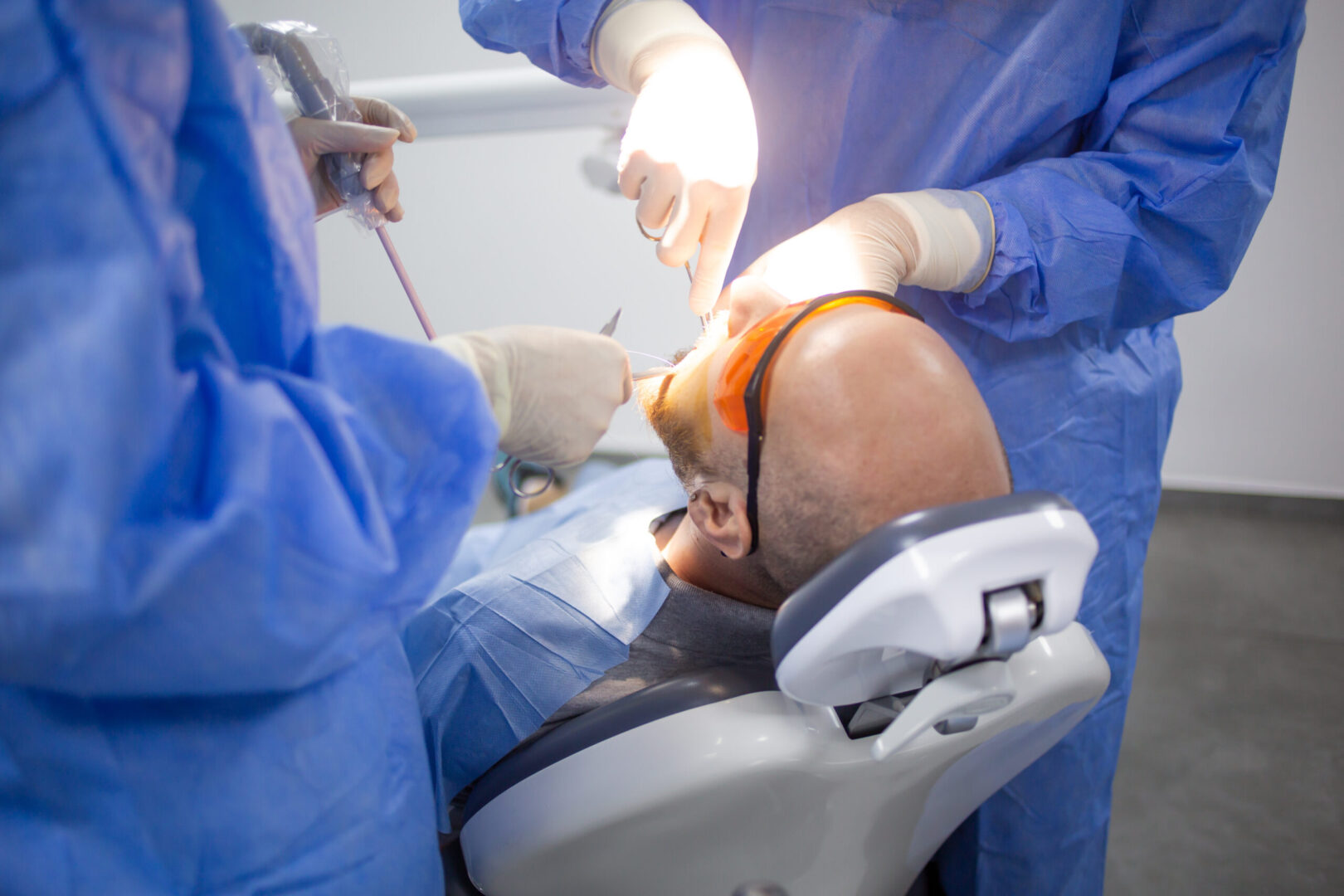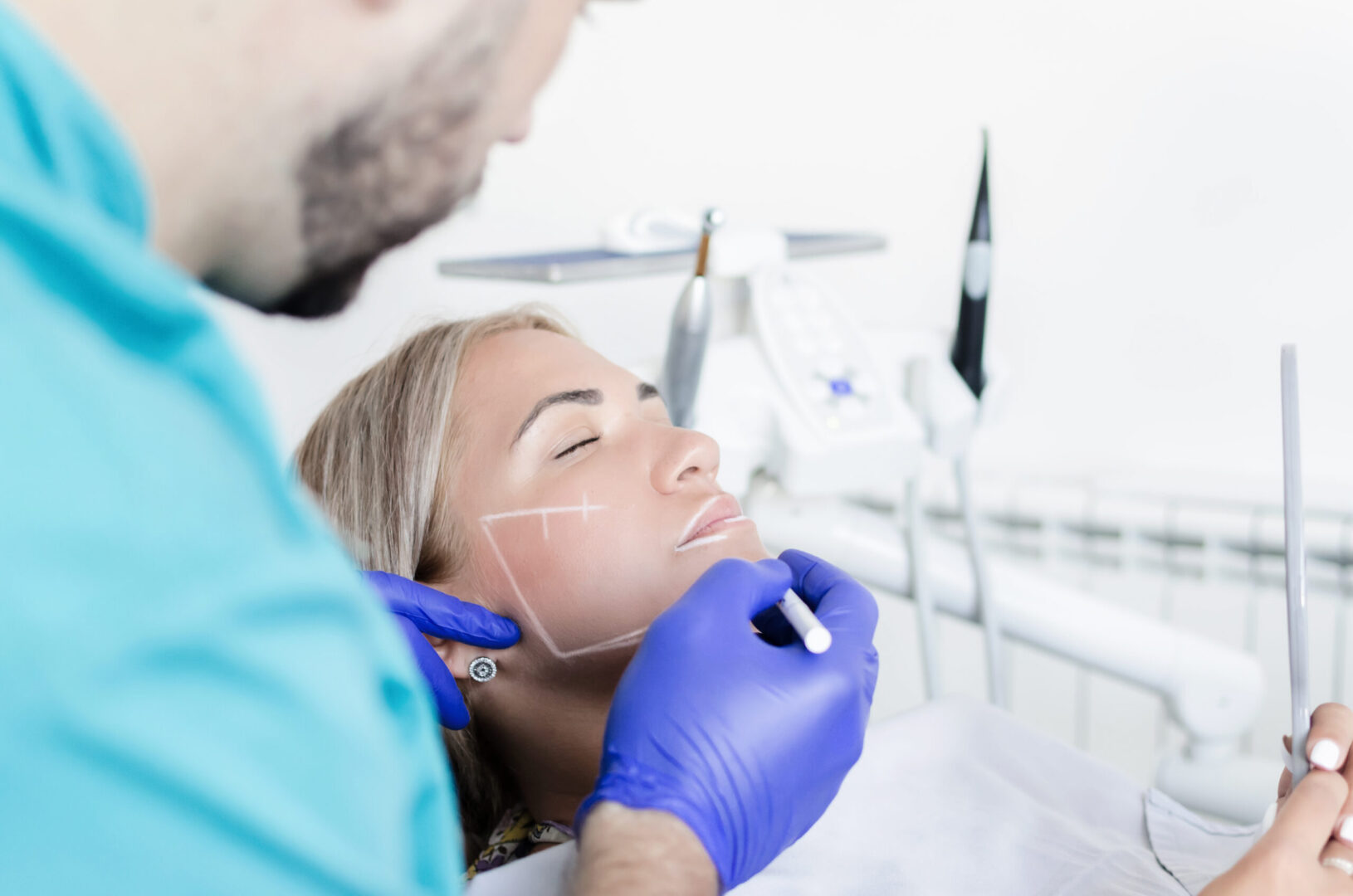Advanced Oral Surgery
Oral surgery refers to any surgical procedure performed on your teeth, gums, jaws or other oral structures. This includes but is not limited to extractions, implants, gum grafts and jaw surgeries.
Types of Oral Surgeries
Oral surgery is a specialty within dentistry that involves the surgical treatment of the mouth, teeth, and jaws. Oral surgeons are dental professionals who have completed additional training and education in oral surgery. Common types include dental implants, gingival grafting, and much more.
Oral surgery can help improve the function and appearance of the mouth, teeth, and jaws, and it can also help to prevent dental problems in the future. It is generally well tolerated by patients, although it may cause some discomfort and swelling in the recovery period.
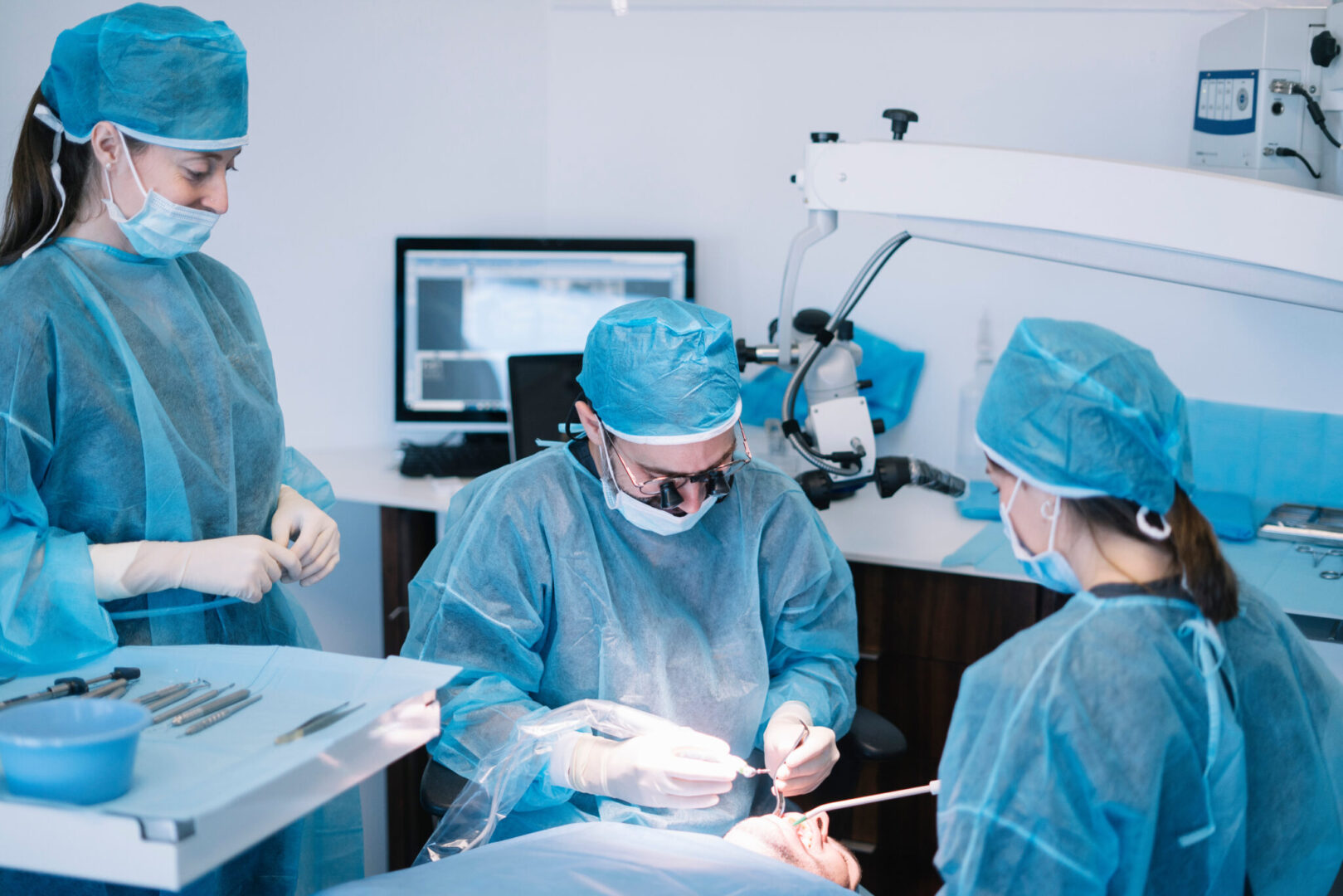
Facial Trauma
Facial trauma surgery may be necessary after an accident or injury that causes damage to the face, such as a car crash, sports injury, or fall. The goal of the surgery is to restore the normal function and appearance of the face as much as possible.
Facial trauma surgery can help improve the function and appearance of the face and can also help to prevent long-term complications from the injury.
Gingival Grafting
Gingival grafting is a type of oral surgery that involves taking a small piece of healthy gum tissue from another part of the mouth or using synthetic or donor tissue to cover and protect exposed roots or to improve the appearance of the gum line.
Gingival grafting is often used to protect exposed roots or improve the appearance of the gum line.
Impacted Canines
Impacted canines treatment typically involves a surgical procedure to expose the tooth and bring it into the proper position in the mouth. Treatment may involve the use of braces, headgear, or other orthodontic appliances to help move the tooth into its proper position.
Oral Pathology
A dental specialization for diagnosing and treating diseases and disorders pertaining to the mouth, oral cavity, and jaw. Oral pathology plays a vital role in the diagnosis and treatment of oral diseases and abnormalities. It is an important part of maintaining the overall health and function of the mouth, teeth, and jaws.
Sleep Apnea Treatment
Effective treatment for sleep apnea can help improve sleep quality, reduce the risk of health problems, and improve quality of life. It is important for individuals with sleep apnea to seek treatment as soon as possible to ensure optimal health and well-being.
TMJ Treatment
TMJ disorder affects millions of Americans between ages 20 and 40. Effective TMJ treatment can help relieve pain and discomfort, improve jaw function, and reduce the risk of long-term complications. It is important for individuals with TMJ disorder to seek treatment as soon as possible to ensure optimal health and well-being.
Wisdom Teeth Removal
Removal of wisdom teeth is considered an essential component for keeping adult teeth fully aligned. Our oral surgery team performs the extraction process using the latest technology available and can complete most procedures in one sitting.
Maxillofacial & Jaw Surgery
Maxillofacial and jaw surgery is a type of surgery that focuses on the bones and soft tissues of the face, head, and neck. Maxillofacial and jaw surgery can be performed using various techniques, including traditional surgery, laser surgery, and endoscopy.


